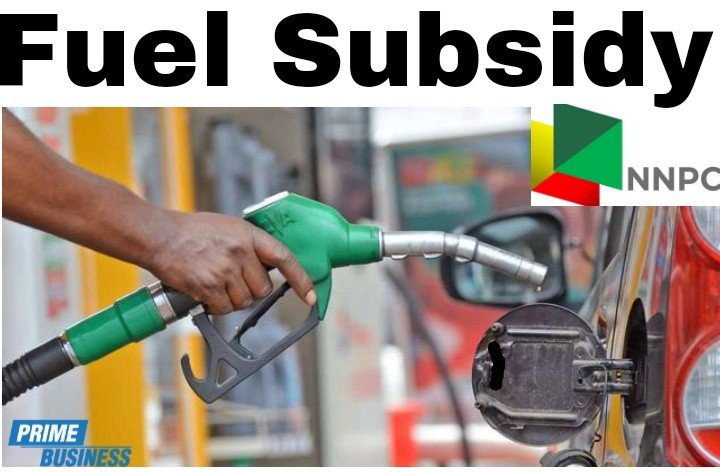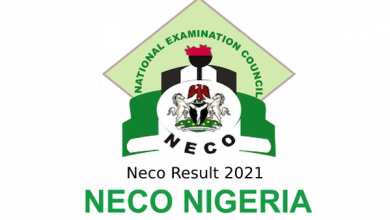Fuel Subsidy in Nigeria – The Benefits, Advantage, Disadvantage, Reform/Remove Explained

You wake up in the morning, turn the key in the ignition and drive off to work. Ever wonder how much of what you pay for gas actually goes toward the fuel itself? In Nigeria, the government subsidizes the cost of fuel for citizens. While the policy aims to make fuel affordable and support citizens, fuel subsidies are complex with many pros and cons worth considering regarding reform.
What Is Fuel Subsidy in Nigeria?
Fuel subsidy in Nigeria refers to the government’s policy of keeping fuel prices low by reducing taxes on petroleum products and controlling the amount oil marketers can charge for fuel. The goal is to make fuel affordable and accessible for citizens.
In Nigeria, the government subsidizes the cost of importation and distribution of petroleum products like gasoline, diesel, and kerosene. This means the government pays the difference between the regulated fuel price and the actual market price of the products. For years, Nigeria spent billions of dollars annually subsidizing fuel for its citizens.
While the intention behind fuel subsidies is good, providing affordable energy for all, it is a controversial policy. On the one hand, low fuel prices can help stimulate economic growth by reducing costs for businesses and consumers. It also makes life more affordable for the average Nigerian. On the other hand, fuel subsidies are unsustainable as they cost the government huge sums of money and reduce funds for other priorities like education, healthcare, and infrastructure.
Removing or reducing fuel subsidies is a complex issue with many trade-offs to consider regarding government budgets, energy access, cost of living, and economic growth. Any reforms will need to balance the needs of citizens and the fiscal health of the nation. With open dialog and careful policymaking, Nigeria can develop a sustainable approach to make energy affordable and accessible for its people.
The Benefits of Fuel Subsidy for Nigerians
As a Nigerian, fuel subsidy means cheaper petrol and lower costs of living. It’s helped many households and small businesses over the years.
The Direct Benefits
By subsidizing fuel, the government makes it more affordable for everyone. This means you pay less at the pump, so you have more money in your pocket for other essentials. For many Nigerians living in poverty, even small price reductions can help.
Fuel subsidy also reduces operating costs for businesses, especially small enterprises and farmers. Lower fuel prices translate into lower costs of production and transportation of goods. This makes local products and services more affordable and competitive.
The Wider Impact
Cheap fuel boosts Nigeria’s economy in many ways. It supports increased mobility, trade, and productivity across sectors like agriculture, manufacturing, and tourism. More disposable income and lower business costs also drive consumer spending, which benefits local industries and job creation.
While fuel subsidy reform could address government revenue issues, removing it risks slowing economic growth and worsening living standards, at least in the short term. The policy aims to help vulnerable groups, so reforms should consider targeted support to cushion the impact on those who would suffer most.
Any changes to the fuel subsidy program should be gradual, balancing the needs of citizens and the economy during the transition. With good governance, subsidy funds could be better managed to maximize benefits for all Nigerians. But removing it altogether may do more harm than good.
The Disadvantages of Fuel Subsidy
The fuel subsidy program in Nigeria also has some significant disadvantages that are worth considering.
Cost to Government
The fuel subsidy costs the Nigerian government billions of dollars each year. The funds spent on subsidizing petrol could be better spent on infrastructure, education, healthcare and other public services that would benefit citizens. Removing the subsidy would free up funds that could be invested in the country’s development.
Smuggling and Fraud
The low regulated price of fuel in Nigeria has led to rampant smuggling of petrol to neighboring countries where prices are higher. It is estimated that over 15% of Nigeria’s fuel is smuggled out of the country each year. The subsidy program is also prone to fraud and abuse as unscrupulous marketers claim subsidies for fuel that is never imported or sold. Tightening controls and removing subsidies would help address these issues.
Discourages Private Investment
With the government controlling and subsidizing fuel prices, private companies are discouraged from investing in Nigeria’s oil refining and distribution infrastructure. This has led to a situation where Nigeria imports the bulk of its refined fuel despite being a major crude oil producer. Eliminating subsidies would make the downstream oil sector more attractive to private investors and boost domestic refining capacity.
While fuel subsidies aim to make petrol affordable and help citizens, reforming or removing the program in Nigeria could have economic benefits. Savings could be reinvested in initiatives that more directly help the poor, smuggling and fraud reduced, and private investment in oil refining encouraged. Any reform would need to be gradual and consider the impact on consumers, but re-evaluating and restructuring the subsidy program could be an opportunity for positive change.
The Complex Politics of Fuel Subsidy Reform
The politics surrounding fuel subsidy reform in Nigeria are complex, to say the least. On the one hand, removing subsidies could provide much-needed government revenue and encourage private investment in the oil sector. On the other hand, subsidies make fuel more affordable for average Nigerians, many of whom live in poverty.
Reforming or removing subsidies is controversial and politically risky. Past attempts have been met with strikes and protests, as people worry about sharp rises in fuel prices. However, the current subsidy system benefits the wealthy and those involved in oil smuggling, not the poor. Reforms could make the system more targeted and efficient, if done gradually and paired with programs to help the most vulnerable.
There are good arguments on both sides. Government leaders have to weigh the pros and cons carefully. Some options they could consider include:
Gradual price increases:
Raising prices slowly over time, rather than all at once. This softens the impact on consumers while still generating revenue.
Cash transfers:
Providing direct cash payments to lower-income households to offset higher fuel costs. This makes reform more politically viable.
Improved public transit:
Investing subsidy savings in affordable and reliable bus and rail systems. This gives commuters an alternative to driving, especially for shorter trips.
Reduced oil dependence:
Using revenues to fund renewable energy and efficiency programs. This diversifies Nigeria’s energy sources and economy over the long run.
Reforming or removing fuel subsidies is a complex issue with many trade-offs to weigh. With careful planning and policies to protect the poor, subsidy reform could benefit Nigeria’s economy and energy security. But it requires political will and leadership to navigate the many obstacles and push through an equitable solution. There are no easy or straightforward answers, but debate and open dialog are desperately needed.
What Happens if Fuel Subsidy Is Removed? Exploring the Pros and Cons
If the fuel subsidy is removed in Nigeria, there will be both advantages and disadvantages to consider. On the positive side, removing the subsidy could help the government save money that is currently used to subsidize fuel costs. This could free up funds for other priorities like education, healthcare, and infrastructure.
Removing the subsidy may also encourage more investment in Nigeria’s oil industry since fuel will be sold at the actual market price. New refineries could be built, and older ones upgraded. This could help Nigeria become more self-sufficient in fuel production rather than relying on imports.
However, removing the fuel subsidy will likely lead to an increase in the price of fuel for average Nigerians. Transportation, electricity, and food costs may rise as a result. This could negatively impact the economy and disproportionately affect poorer citizens who spend a larger portion of their income on fuel and transportation.
There is also a chance that the subsidy removal may lead to civil unrest over rising costs of living. Protests and strikes in the past have forced the government to reinstate or modify fuel subsidy removals. The government will need to consider ways to cushion the impact of subsidy removal on citizens, possibly through targeted cash transfers or subsidies for public transportation.
In summary, eliminating the fuel subsidy in Nigeria could provide economic benefits but also risks raising costs for consumers and spurring social unrest. A balanced, gradual approach that provides support for citizens may be needed to make this reform successful. With open communication about the challenges and benefits, subsidy removal could put Nigeria on a path to greater energy independence and economic prosperity.
Conclusion
So there you have it, the complex issue of fuel subsidy reform in Nigeria with many angles to consider. Removing or reforming the subsidy could save the government billions to invest in critical infrastructure and social services. It may also encourage more competition and efficiency in the oil sector. However, it risks increasing fuel prices and the cost of living for average Nigerians. There are good arguments on both sides, but at the end of the day, there must be a balanced solution that protects the vulnerable, roots out corruption, and secures Nigeria’s energy future. The path ahead won’t be easy, but with open dialog and by putting the people first, Nigeria can implement subsidy reforms that benefit all. The road is long, but step by step, Nigeria will get there.




![National Examinations Council (NECO) GCE Timetable for 2021 SSCE External Candidates [Updated] National Examinations Council (NECO) GCE Timetable for 2021 SSCE External Candidates [Updated]](/wp-content/uploads/2021/10/images-16-390x220.jpeg)







